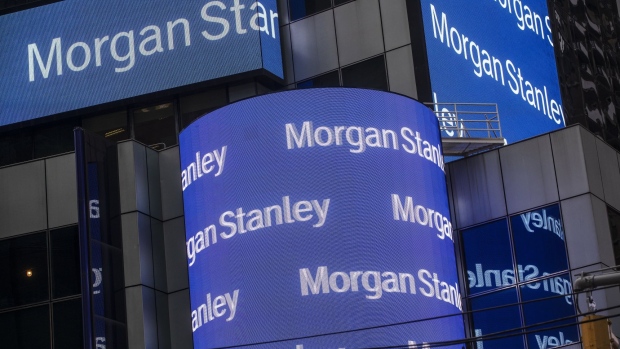CRIMINAL CAPITALI$M BANK ROBBERS
Morgan Stanley Among Block-Trading Firms Facing U.S. Probe
, Bloomberg New
(Bloomberg) -- U.S. authorities are scrutinizing how Wall Street firms including Morgan Stanley handle block trades, as part of a long-running probe into stock transactions typically big enough to move markets, according to people with direct knowledge of the matter.
The behind-the-scenes inquiry has been looking into how banks execute the trades with help from outside market makers, the people said. The Securities and Exchange Commission began investigating in 2018, and after initial inquiries and what appeared to some outsiders as a lull in the case, officials sought more information, with the Justice Department opening its own probe, the people said. It’s unclear what evidence prompted the additional inquiry.
Goldman Sachs Group Inc. also has received requests for documents, the Wall Street Journal noted in a report on the probe earlier Monday.
Spokespeople for the SEC, Justice Department, Morgan Stanley and Goldman Sachs declined to comment. The opening of investigations does not mean charges will necessarily follow. While multiple firms have received inquiries, it’s not clear which, if any of them, may be suspected of wrongdoing.
Investment banks typically spearhead block trades. The firms acquire a slug of stock from an investor -- such as hedge funds, private equity firms or venture capital firms -- at a discount, before parceling the shares out discreetly to buyers. The aim is to price the blocks at a slim premium, and to avoid sending a stock’s price into a dive before the transaction is completed, which can inflict losses.
Banks have long strived to keep a lid on the unregistered stock offerings, typically negotiating them outside of market hours to reduce the potential for stocks to drop while arrangements are being made.
Yet price declines before the trades have raised concerns for years that some investors may be abusing access to confidential information.
Some funds that have received subpoenas from the government serve as banks’ “liquidity providers” for the deals, ready to buy up blocks, including those that have few interested buyers, the Journal reported, citing unidentified people with knowledge of the matter.
©2022 Bloomberg L.P.
No comments:
Post a Comment